February 24-March 1
A look at the main events this past week

România Internațional, 01.03.2014, 13:54
The ruling Social Liberal Union collapses
Seen as one of the most powerful political coalitions in the past 25 years, the Social Liberal Union has collapsed after holding power for nearly two years. The Union was the overwhelming winner of the 2012 parliamentary elections, with almost 60% of the votes. The National Salvation Front, the ancestor of the Social Democratic Party, continues to hold the all-time record for winning 65% of the votes in the 1990 elections. Interior tensions escalated within the Social Liberal Union three weeks ago, when the Liberals nominated Sibiu Mayor Klaus Iohannis as the new Interior Minister and Deputy Prime Minister in a reshuffled government. After the Social Democrats opposed the move, the Liberals withdrew from the Social Liberal Union, and all Liberal Ministers and State Secretaries tendered their resignations. Prime Minister Victor Ponta is expected to announce the membership of the new government next week. The new cabinet will include members of the Social Democratic Party and its junior partners, the Conservative Party and the National Union for the Progress of Romania. The Social Democrats have also invited the Democratic Union of Ethnic Hungarians in Romania to be part of the new government. Following the break-up of the Social Liberal Union, the former Liberal Prime Minister Calin Popescu Tariceanu withdrew from the National Liberal Party, which he helped build in the 1990s and even headed for a short period. Tariceanu announced he would found the Reformist Liberal Party, also expressing his interest in running in the presidential elections in December.
The government in Bucharest approves the letter of intent agreed with the IMF
The Romanian Government in Bucharest has approved a letter of intent agreed upon with the International Monetary Fund, which accompanies the stand-by agreement signed by Romania with this institution last autumn. The letter was approved by Victor Ponta’s temporary cabinet made up of only 9 ministers, following the split with the Liberal Party. The document has been forwarded to president Traian Basescu. The latter previously refused to sign its first draft, which provided for an increase in the excise duty on fuel. The current draft makes no such mention, nor does it include any facilities for the repayment of bank loans by individual persons, which the president also opposed. Romania’s agreement with the International Monetary Fund is valid for a period of two years and is worth 2 billion euros.
The National Anti-Corruption Directorate makes public its 2013 activity report
The National Anti-Corruption Directorate indicted over 1,000 people last year, including ministers, MPs, heads of county councils, mayors, CEOs of national companies and other public institutions. The total damage was estimated at around 250 million euros. This, in brief, is the conclusion of the activity report of the National Anti-Corruption Directorate, as presented by its chief, Laura Codruta Kovesi. She also denounced the constant public pressure and attacks targeting the judicial process and anti-corruption prosecutors. Some of the high-ranking officials recently investigated by the Directorate include the former Minister Delegate for Romanians Abroad Cristian David, the former Finance Minister Daniel Chitoiu and the president of the Financial Surveillance Authority, Dan Radu Rusanu. Institutional corruption continued to be a widespread problem in Romania in 2013, affecting all sectors of society, the latest report of the US State Department also shows. According to this document, the justice system took action to investigate and pass sentences on officials found guilty of abuse of office. However, the Romanian authorities have repeatedly delayed legal procedures in cases of alleged police abuse, while the officials in question were often acquitted of all criminal charges.
The citizens of the neighbouring Republic of Moldova can travel to the Schengen area without visas
The Romanian Foreign Ministry has hailed the historic vote by the European Parliament, which approved, by a large majority, the lifting of visas for the citizens of the Republic of Moldova (a former Soviet state with a predominantly Romanian speaking population). Thus, Moldova becomes the first Eastern Partnership member state to benefit from the liberalisation of the visa regime. The measure will allow Moldovan citizens who own biometric passports to travel freely to the Schengen area for 90 days, during a 6-month period. The decision might take effect as of this summer, after it is endorsed by the European Council. The liberalisation of the visa regime was one of the priorities of the pro-European coalitions that have come to power in Moldova after the overthrow of the communists. Last year, the Republic of Moldova initialled its Association Agreement with the European Union, that it hopes to sign this year.
The Ukrainian Parliament repeals minority language law
Following the regime change in Kiev, the Ukrainian Parliament has repealed a law under which the language of an ethnic minority can be used in an official context, if the respective minority exceeds 10% of the population living in a region. The provisions of this law also benefited the ethnic Romanians living in Chernivtsi and the Transcarpathian region, in the west. The Romanian Foreign Ministry has warned that Ukraine should protect the rights of its ethnic minorities, if it wants to remain committed to its Europeans path. The Romanian Foreign Ministry also says it will monitor the situation of the ethnic Romanian community in Ukraine and the way its rights are observed and promoted. Romania’s Prime Minister Victor Ponta has expressed hope the law in question will be replaced by a European regulation as soon as possible, adding that the observance of the rights of the Romanian ethnic minority in Ukraine is important for the authorities in Bucharest.




























